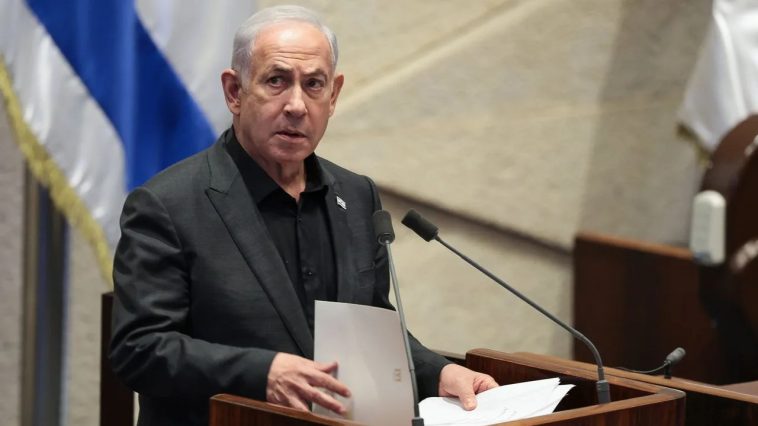LISTEN HERE:
In the aftermath of the shocking Oct. 7 massacre by Hamas gunmen, Israelis have come together to support one another. However, there is growing discontent towards the government, which is being accused of neglecting the country’s security and plunging it into a destabilizing Gaza war.
Prime Minister Benjamin Netanyahu, who has had a long and illustrious political career, will face a day of judgment. Public outrage has been fueled by Netanyahu’s self-styled image as a Churchillian strategist who can foresee national-security threats. Additionally, the government’s judicial overhaul drive, which has caused social polarization, is now raising doubts about combat-readiness.
The Israeli daily Yedioth Ahronoth boldly stated, ‘October 2023 Debacle,’ a headline reminiscent of Israel’s failure to anticipate an offensive in 1973. This could lead to similar consequences for Netanyahu and his conservative Likud party.
It doesn’t matter if there’s an inquiry or if he admits fault; what truly matters is how ‘middle Israelis’ perceive this situation. They see it as a fiasco with the prime minister being held responsible. This could spell the end for Netanyahu and his entire establishment.
According to a poll in Maariv newspaper, only 21% of Israelis want Netanyahu to remain prime minister after the war, while 66% prefer ‘someone else,’ and 13% are undecided. The poll suggests that if an election were held today, Likud would lose a third of its seats, with Benny Gantz’s centrist National Unity party making significant gains.
However, at this critical juncture, Israelis aren’t seeking an election; they want action. Former military chief Benny Gantz, despite political differences, has joined Netanyahu in an emergency cabinet to address the ongoing crisis.
Netanyahu has limited his public appearances, focusing on the top brass and foreign emissaries. In a secluded meeting with relatives of the hostages taken to Gaza, his actions were not captured by TV cameras.
While the public outcry mounts, Netanyahu’s wife visited a mourning family. The prime minister has yet to take personal accountability for the situation, even though his top officials have acknowledged the failure to anticipate and prevent the catastrophic attack on civilians.
Israel has garnered vocal support from the West for its counter-offensive, but that support might waver if a ground invasion in Gaza results in increasing Palestinian casualties and military losses. Furthermore, this war could undermine two key pillars of Netanyahu’s foreign policy: peace with Saudi Arabia, which is currently on hold, and a restraint on Iran.
The Hamas mini-invasion is being celebrated by Iran as a victory against an axis of nations seeking Israel’s destruction.
Military strategists predict that the war aiming to annihilate Hamas could last for months, granting Netanyahu a political truce in the process.
However, concerns remain about the prime minister’s health, especially since he received a pacemaker in July amid rising protests. With his 74th birthday approaching, his well-being raises additional questions. While some commentators attribute the rifts within Israeli society to Netanyahu alone, others argue that these issues are more widespread and require collective efforts to repair.
Asa-El, a research fellow at the Shalom Hartman Institute, has noticed growing animosity toward certain cabinet ministers among natural Likud supporters. The anger continues to escalate while Netanyahu appears to evade his responsibility.
It seems he struggles to admit that mistakes were made. This further fuels public discontent and animosity. Collectively, we must put our differences aside and focus on repairing the damage caused by internal division. It is not too late to unite and emerge stronger from this crisis.


